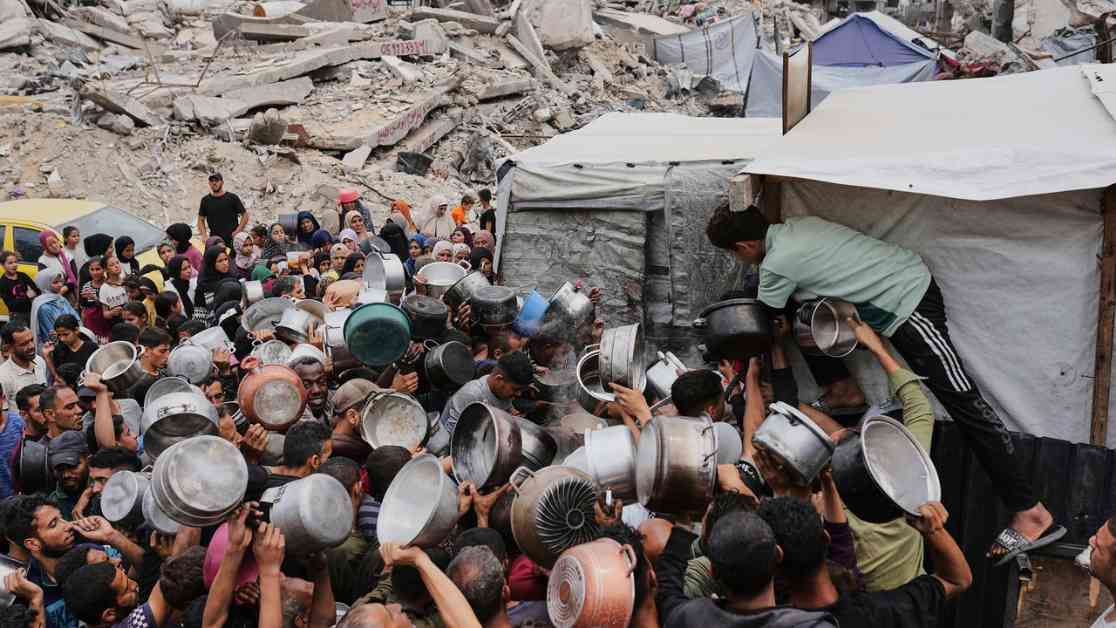The Israeli government recently decided to allow humanitarian aid into Gaza after blocking it for over two months. Initially, only a few trucks carrying baby food and other essentials were allowed in, but the following day, they claimed to have permitted ninety-three additional trucks. However, the United Nations reported that none of the trucks from the second day reached their intended destination. Humanitarian organizations have been warning of a potential hunger crisis, estimating that at least five hundred trucks per day are needed to address the situation adequately. The announcement regarding the limited aid was made by Israeli Prime Minister Benjamin Netanyahu, who described it as “minimal” and credited pressure from international allies for the aid delivery.
Interviewing Shira Efron, a research director and senior fellow at the Israel Policy Forum, shed light on the dire situation in Gaza. Efron, who has experience working on humanitarian issues in the region, discussed the severe health conditions in Gaza and the lack of essential supplies reaching the population. She highlighted the challenges faced by Gazans, including shortages of food, medicines, and basic necessities. Efron also addressed the discrepancies in assessments between the Israeli military and humanitarian organizations, emphasizing the urgent need for aid to prevent a large-scale disaster.
Addressing concerns about the new aid plan proposed by the Israeli and American governments, Efron expressed reservations about its effectiveness. The plan involved setting up distribution centers in Gaza, but there were criticisms about its limited coverage and the logistical challenges faced by vulnerable groups. Efron raised doubts about the plan’s ability to prevent aid exploitation by Hamas and emphasized the need for a more comprehensive approach to address the humanitarian crisis in Gaza. Despite the recent influx of aid, Efron emphasized that the situation in Gaza remains critical and will require sustained efforts to rebuild and recover from the ongoing crisis.












